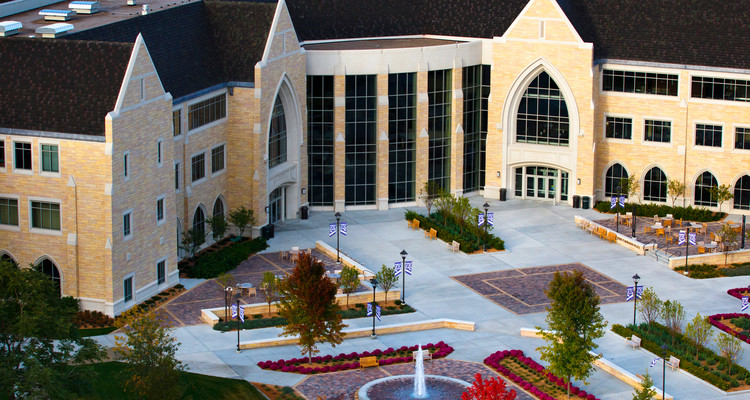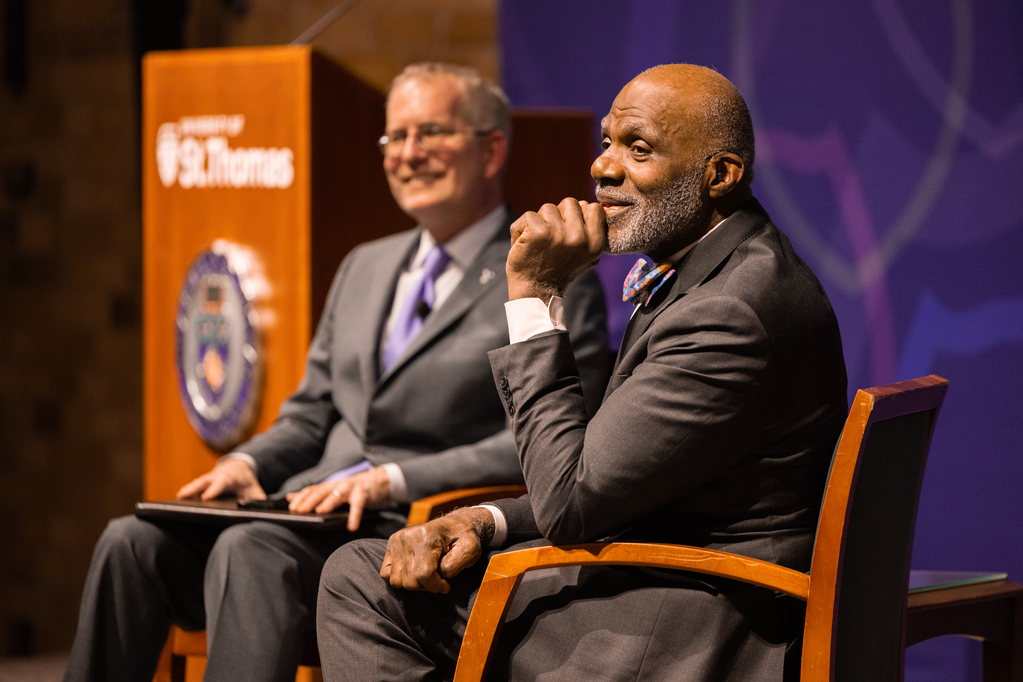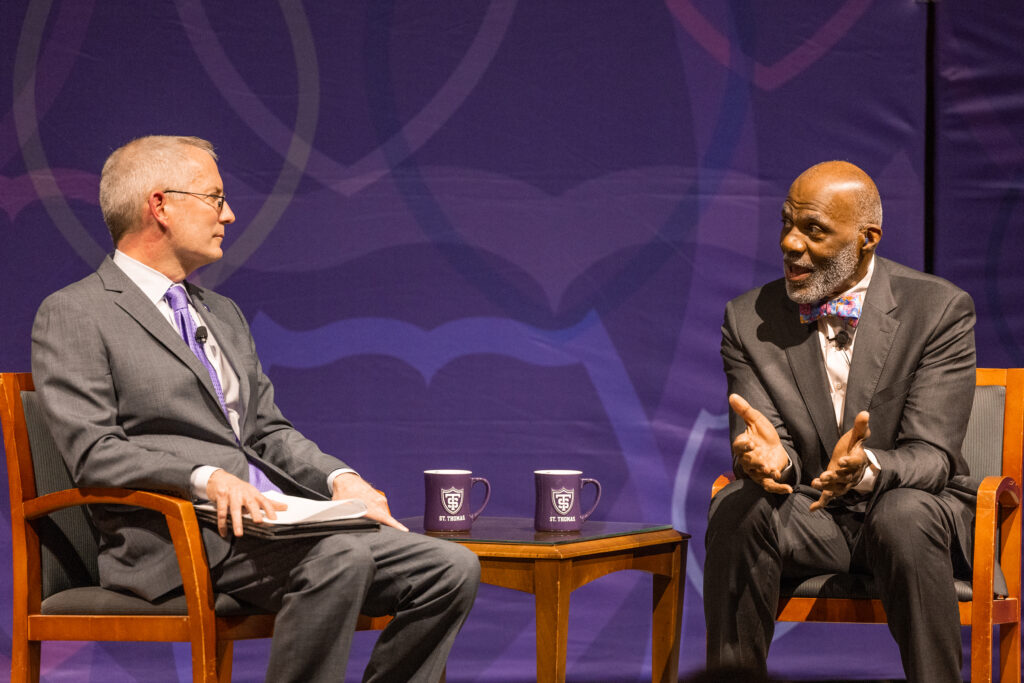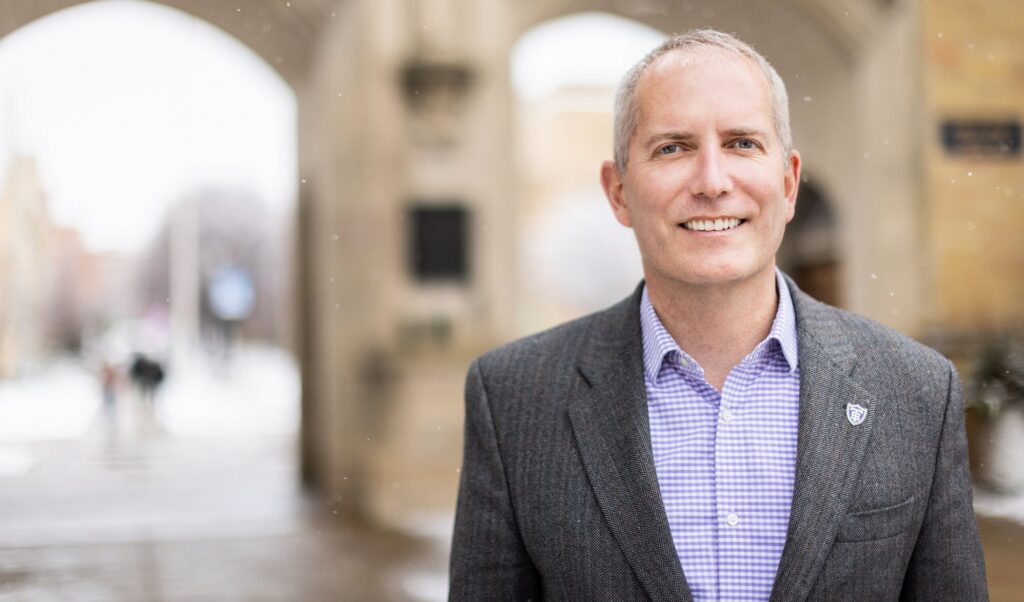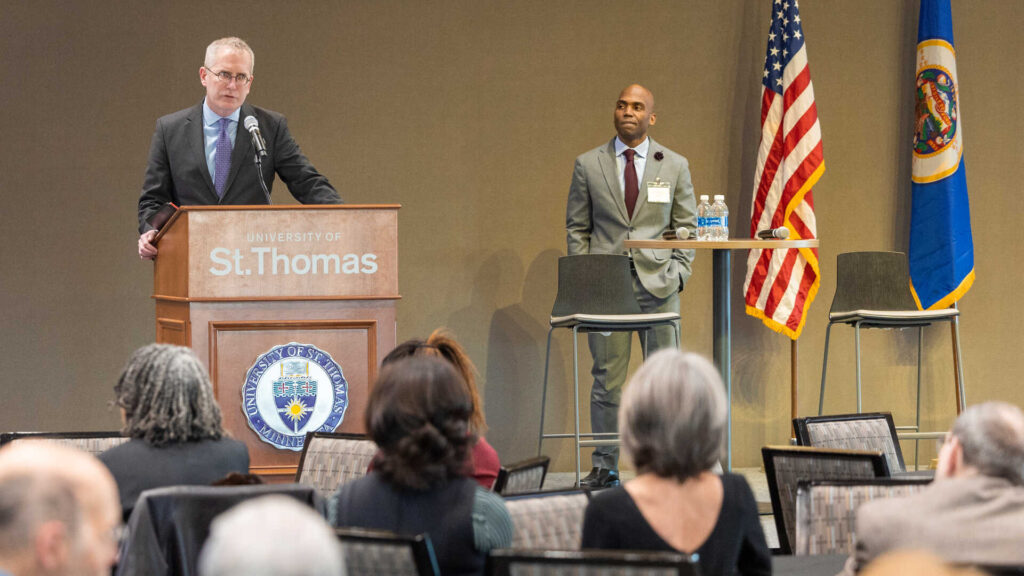University of St. Thomas President Rob Vischer sent the following message to St. Thomas students on Jan. 5, 2024.
Over the past few months, higher education has been in the headlines as students, faculty, and administrators have grappled with the boundaries of campus free speech policies. As weighty geopolitical issues persist and as another election season looms, I’d like to remind our community of our university’s commitment to free expression.
As reflected in our policies,* St. Thomas seeks to promote an environment of robust discourse, open inquiry, and free expression where a wide range of perspectives and ideas can be shared and critically examined. This commitment underpins the concept of academic freedom and is central to St. Thomas’s mission of advancing the common good. The commitment is also consistent with our Catholic identity and convictions, which call for the pursuit of truth and meaningful dialogue directed toward the flourishing of human culture. We expect community members to treat others with dignity, civility, and respect. This shared expectation enriches free expression by creating an environment where all community members feel welcome to share, explore, and challenge ideas.
We both allow and encourage students to express their ideas and beliefs on any subject. The university does not prohibit speech by students, faculty, or outside speakers because the opinion or viewpoint is disagreeable, unpopular, offensive, or causes discomfort to members of the community. The willingness to listen and tolerate a range of opinions contributes to academic discourse and inquiry. Students are encouraged to evaluate ideas and arguments, not by seeking to suppress speech, but by candidly, rationally, and respectfully challenging ideas they oppose.
There are limits to free expression on campus, of course. St. Thomas does not tolerate speech that constitutes harassment, defamation, obscenity, or threats of violence. Student expression cannot obstruct university operations or unreasonably interfere with the rights of others to engage in their education or work, and the university may reasonably regulate the time, place, and manner of expression to ensure it does not disrupt the ordinary activities of the university. For example, students may not block an entrance to a university facility or express their views in a way that prevents others from listening to a campus speaker. In addition, the university may act to ensure that our institutional values are reflected in campus programs even if not every speaker is aligned with university values.
Our success in building the culture to which we aspire at St. Thomas will not depend only on rules and policies. Many key questions will never be addressed by institutional regulation. We have to answer these questions ourselves, in our day-to-day interactions: Beyond our readiness to express our views, are we ready to listen to those who disagree with us? Can we resist the increasingly common tendency to choose sides and then treat that choice as the end of moral reflection on the matter? Can we help one another walk in the shoes of those on all sides of our society’s most pressing questions, particularly those who are too easily marginalized? Can we build bridges across the various divides that mark our world, not through arms-length pronouncements but through the painstaking process of mutual understanding? It requires long, difficult work to permit your story to shape my story, but it is work that has never been more important.
I aspire for St. Thomas to be a model of respectful, spirited, and rigorous engagement regarding issues that matter in a world that is sorely lacking such models. I hope you share that aspiration, and I appreciate your help in making it a reality.
With warm regard,
Rob
*Note that relevant St. Thomas policies include our nondiscrimination and anti-harassment policy; student policy regarding expression, demonstrations, and sponsorship of speakers and organizations; and the student code of conduct.
